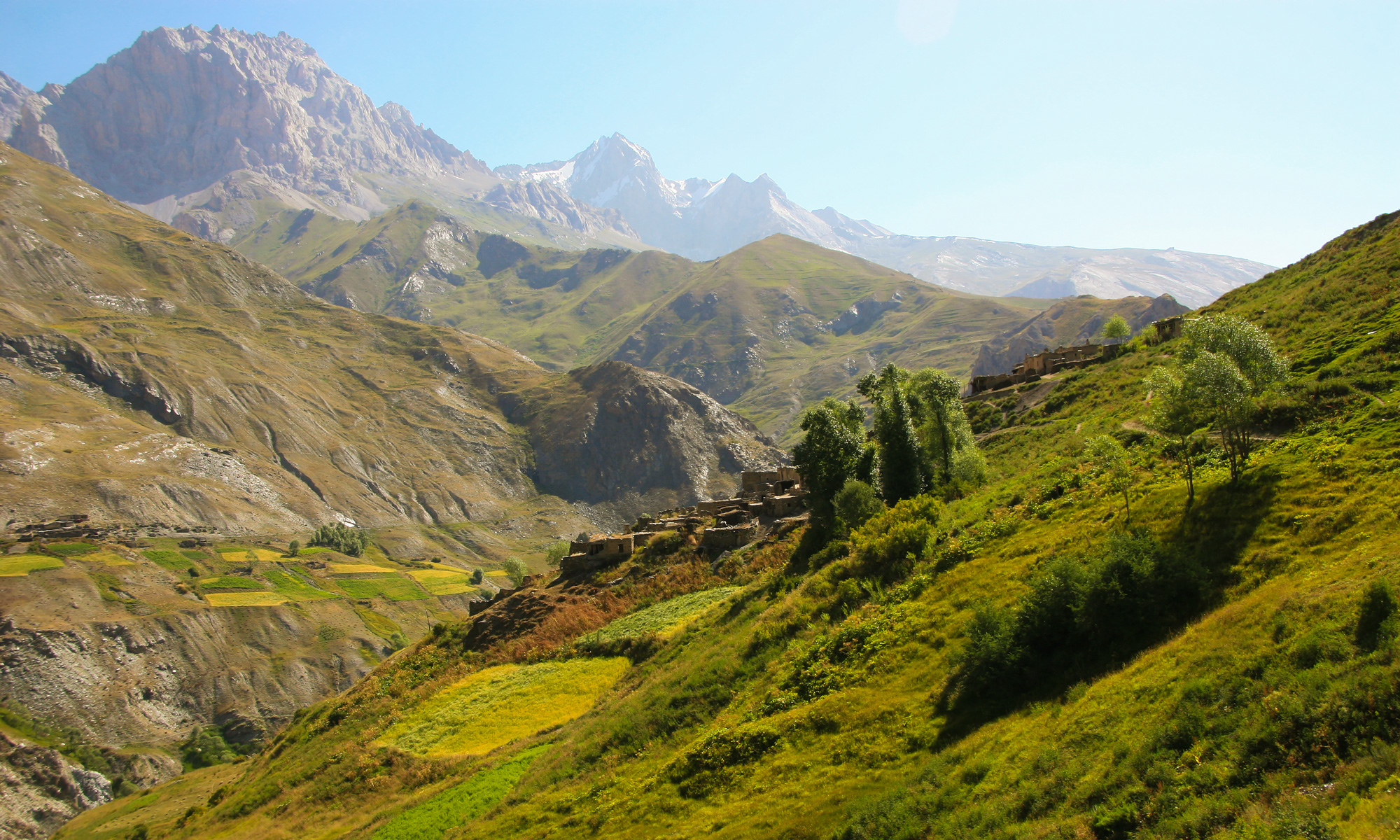There’s a certain kind of silence in the Yaghnob Valley that doesn’t exist anywhere else. It’s not empty. It hums softly with the sound of wind through wild grass, with the creak of stones under your boots, with the echo of forgotten songs carried down from the mountains. For Rahmatullo, it was the sound of home.
He had lived for years in the lowlands, like so many others deported from Yaghnob during the forced relocations of the 1970s. He had endured the scorching heat of Zafarobod, the foreign soil, the concrete houses built in straight lines for straight lives — lives that were not theirs. His neighbors were also exiled Yaghnobis. But even together, they felt apart.
“I wanted to have freedom of choice,” he said, sitting on a small bench outside the mud-plastered walls of his returned home in 2009. “I wanted to smell the land where I was born. I wanted to work in the place where I feel comfortable.”
It wasn’t easy, and it still isn’t. Life in the valley offers few luxuries. Winters are long and cruel, roads are often impassable, and services like schools and clinics remain scarce. But for Rahmatullo, none of that outweighed the feeling of being back.
He described his return not as a political act, but as something more intimate — like walking back into his own skin. There was no ceremony. Just him, the mountains, and the smell of soil he remembered from childhood. He bent down and touched the ground when he arrived. “This,” he whispered, “is mine.”
Not in the sense of ownership, but in the sense of belonging.
“I can’t describe it easily,” he said. “In Zafarobod, even on good days, I felt like I was wearing someone else’s clothes. Here, I’m barefoot — but I feel like myself again.”
To be Yaghnobi, for Rahmatullo, is not just a matter of blood or language. It’s a commitment — to memory, to identity, to land. It’s waking up each morning and facing the mountains, not just as a backdrop, but as part of your own body.
And even though the valley still waits for many of its children to return, people like Rahmatullo have already begun building a quiet revolution — not of grand speeches or development plans, but of presence, of persistence, of planting seeds in ancestral soil.
Because sometimes, coming home is the most radical act of all.
